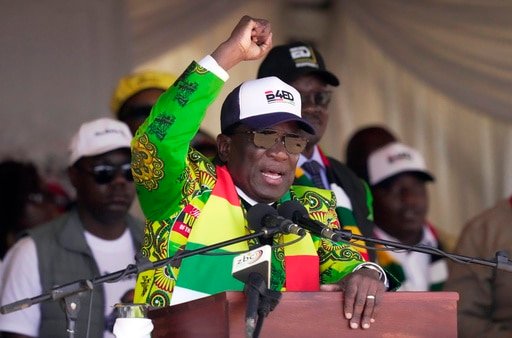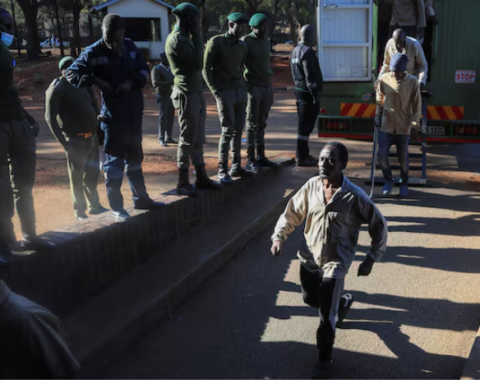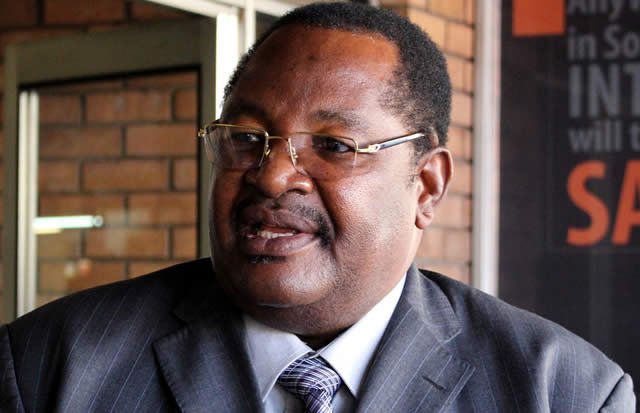Zimbabwe’s ruling party appears to be heading for a decisive victory in the recent election, despite widespread observations of significant flaws in the process.
The Zimbabwe African Union-Patriotic Front maintained its dominance in most rural regions, while the opposition Citizens Coalition for Change secured victory in key urban areas such as Harare, the capital, as well as Bulawayo, the second-largest city. The Zimbabwe Electoral Commission disclosed these outcomes in its released results.
The results of the presidential election, where the incumbent Emmerson Mnangagwa was heavily anticipated to emerge victorious, were yet to be officially announced.
The election held on Wednesday had to be extended in certain areas due to delays and challenges encountered during the voting process. An informal compilation of initial results by the state broadcaster indicated that the Zanu-PF party secured 127 out of 210 seats in the National Assembly, while the CCC obtained 67 seats. The allocation of the remaining seats was still pending. The state-owned Herald newspaper also reported Zanu-PF’s triumph, albeit with slightly differing figures.
Expressing their concerns, the US embassy in Harare stated that the electoral proceedings so far had not met several regional and international standards. Similar apprehensions were voiced by observers from the European Union, the Southern African Development Community, and the UK embassy. These concerns revolved around the transparency, impartiality, fairness, and credibility of the electoral process. Additionally, there were reports of limitations on the right to assemble freely and instances of voter intimidation.
Securing a victory tainted by such issues could potentially disrupt Mnangagwa’s attempts to address Zimbabwe’s $18 billion debt arrears. Creditor institutions, including the African Development Bank, had cautioned that any agreements would hinge on the legitimacy of the electoral competition.
Justice Minister Ziyambi Ziyambi refuted statements from the SADC monitors that the election had fallen short of prescribed standards. Ziyambi argued that election observers were not tasked with revising the nation’s laws, emphasizing that their role centered on evaluating the adherence of processes to established legal frameworks.
Zanu-PF has maintained political control in Zimbabwe since its independence from the UK in 1980. Mnangagwa assumed power following the removal of longtime leader Robert Mugabe in a 2017 coup. The nation has grappled with successive economic crises, severe breakdowns in government services, extensive unemployment, and a history of contested elections dating back to 2000, characterized by allegations of violence, coercion, and manipulation.








